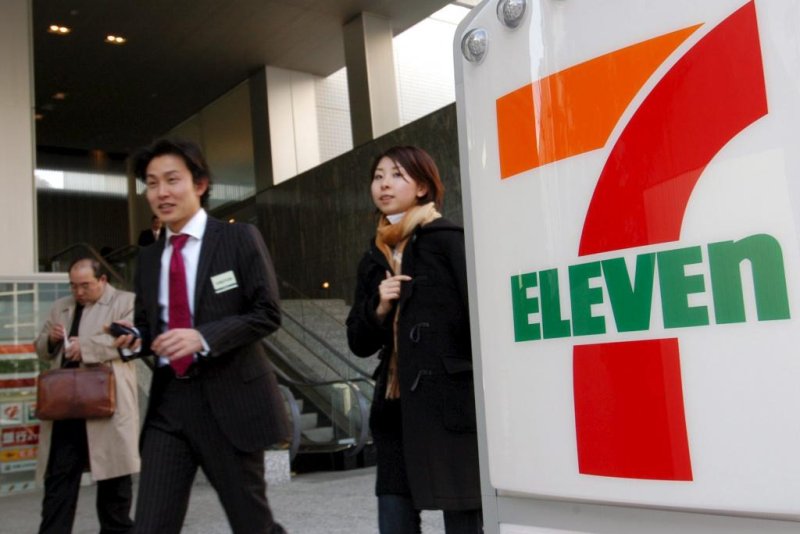Japanese pedestrians pass by a 7-Eleven store sign in Tokyo, Japan. File Photo by Franck Robichon/EPA
April 10 (UPI) -- Japan's convenience stores are scaling back expansion and testing shorter hours, as a rising minimum wage could be impacting the bottom line of companies like 7-Eleven and FamilyMart.
Seven & I Holdings, 7-Eleven's parent company, said Wednesday 60 percent of its capital investments will go to existing stores, Japanese newspaper Nikkei reported.
That portion of the company's investment budget was originally intended for the creation of new stores, but 7-Eleven may be stepping back from a plan to add 150 stores across Japan, according to the report.
The addition of 150 stores is not significant, relative to the number of 7-Eleven stores in operation. The company operates at more than 20,000 locations across Japan.
The business decision comes at a time when Japan is required to raise the minimum wage at an annual average rate of 3 percent. The lowest wage guaranteed by law is expected to surpass 1,000 Japanese yen, or about $9. According to the Nikkei, profit growth exceeded labor costs until 2017, but profit has also decreased with the rise in minimum wage.
In 2018, 7-Eleven stores earned an average daily profit of about $5,900, per store, up 10 percent from nearly $5,400 per store in 2007. Meanwhile the minimum wage has increased 27 percent from 2007 to 2018.
Other reasons cited for postponing or canceling expansion include lack of workers.
7-Eleven rival FamilyMart will be testing shorter hours at stores that voluntarily close its doors in the early hours every Monday, NHK World reported Wednesday.
Reducing nighttime operations is being seen as a way to ease costs and cope with the rise in the minimum wage, according to the report.















